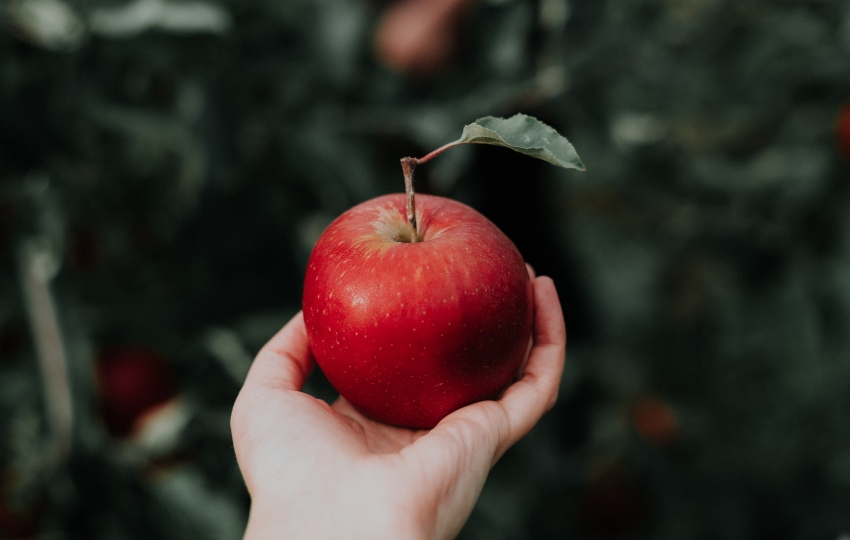There are various reasons to choose organic farming over conventional food production. At the same time, European farmers have extra reasons to become organically certified due to the European financial support provided for such sustainable practices according to the Common Agricultural Policy (CAP).
But apart from the EU financial support to organic producers, additional reasons are making organic farming an EU priority. Be it taste, nutrients, or health benefits, organic products seem far superior to conventionally grown food, and they sell for a better price.
This article will go deeper into the differences between organic and conventional products and provide farmers with reasons to choose organic farming.
The Pros and Cons of Conventional Food
Being at the produce section of a supermarket or a farmers’ market, you will notice several differences between products. On the one hand, you see shiny and perfectly shaped red apples that are appealing to the consumer’s eye. But on the other hand, you can also see identical red apples that are full of spots and with more irregular shapes than the first ones.
For those that are not fully aware of the differences between organic and conventional food, these observations are a good starting point to distinguish between these two categories. Conventionally grown food tends to look perfect as farmers use heavy amounts of chemical fertilizers to help them grow and pesticides to use pests at bay. As a result, food production yields are higher, and those “perfect” products market better.
From the farmer’s point of view, that sounds great on financial terms, but only for the short term.

The Main Differences Between Organic and Conventional Farming
Looking at it on a macroscale, farmers need to adopt more sustainable practices in food production to ensure soil fertility, food and health safety for the future. More precisely, that is where politics come into play to educate and provide incentives to farmers to invest in organic farming. Due to its nature, organic agriculture is riskier, more expensive, and more labour intensive, and thus, farmers are more reluctant to go organic.
However, both farmers and consumers must understand that organic food is not a panacea, but it constitutes a sustainable way of food production with essential health benefits that can also pay well.
The fundamental differences between organic and conventional food farming are as following:
- Conventional farming uses chemical fertilizers to help plants grow, while organic agriculture primarily uses manure and compost for soil fertilization;
- When conventional farmers use pesticides to deal with pests, organic farmers employ traps, disrupt mating, or use birds and other insects;
- Weeding in conventional farming is done with herbicides, while in organic agriculture, weeding is done by hand, with mulches or crop rotation;
- Coming into animal raising, a conventional farm uses antibiotics and growth hormones at will for growth and disease prevention when organic farmers use a balanced diet and regular cleaning of the animals’ enclosure.
From the above, it is evident that conventional farming uses lots of chemicals throughout its process. Those chemicals have been found to have adverse effects on the fauna and flora of ecosystems; they contaminate the groundwater, while remnants of those chemicals have also been found in the foods we consume.

The Reasons to Choose Organic Farming
The lands have been cultivated using conventional farming methods for decades, and scientists have had the time to study their harmful effects on the environment and health. It is vital to change the way we produce our food and our consumption patterns (like prefer a plant-based diet and reduce meat intake) to limit environmental impact and make it sustainable for the future as per the demands of the European Green Deal.
More specifically, if you are looking for more reasons to choose organic farming, the benefits below should convince farmers and consumers about its importance. According to the European Commission, organic farming is:
- a responsible way of using energy and natural resources;
- maintaining biodiversity;
- preserving regional ecological balances;
- enhancing of soil fertility;
- maintaining water quality.
The Contribution of ROSE European Project to Encouraging Organic Farming in Europe
The ROSE European Project is a collaboration of 4 project partners coming from a respective number of European countries. This project aimed to promote the reasons to choose organic farming and to help organic enterprises become sustainable.
The consortium gave special attention to teaching organic business owners how to use social media to promote their businesses and helped them in online branding. Finally, it created a network of organic enterprises that they can use for collaborations and further develop their businesses.
iED is a reliable EU project partner with vast experience in Sustainability EU projects and projects promoting Organic and sustainable farming practices. If you are interested to become our partner, make sure to drop us a line.

